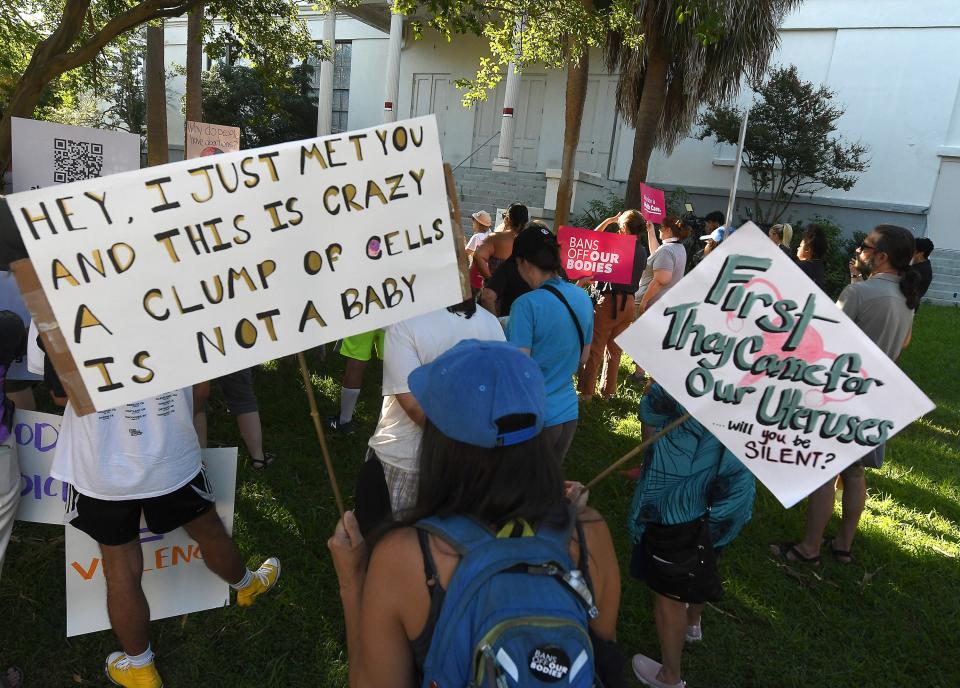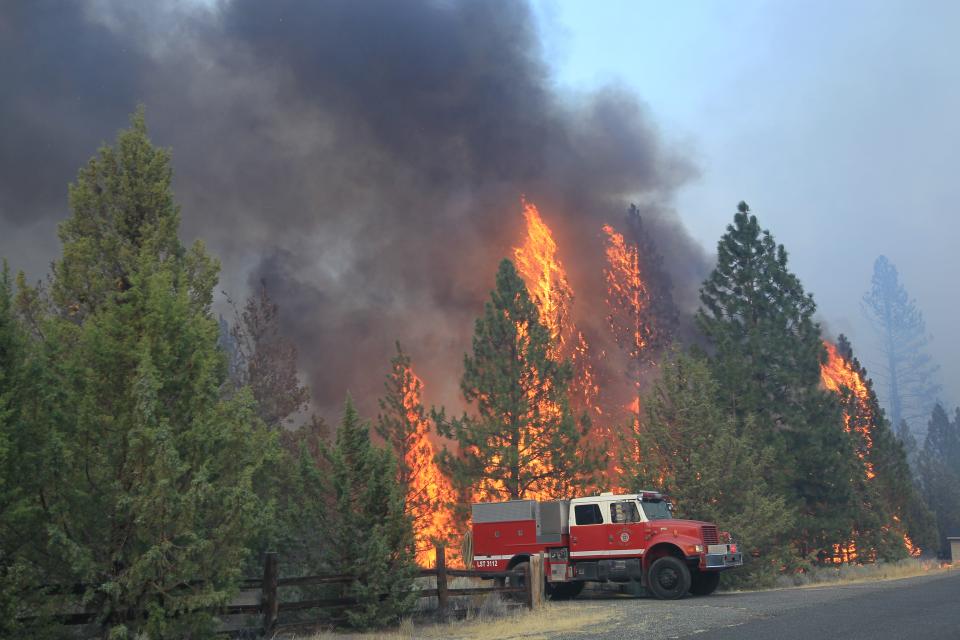How important is climate change to NC voters in the 2022 midterm elections?
At a public meeting in Leland last month, officials with Chemours glowingly discussed the chemical company's plans to expand its operations at the Fayetteville Works complex. Outside, nearly 200 protesters sent a different message to the officials of the company that for decades, along with its predecessor DuPont, dumped toxic "forever chemicals" into the Cape Fear River, contaminants that eventually made it into the drinking water of thousands of downstream residents.
The outrage against Chemours that has gripped the Cape Fear region since 2017 when the StarNews first brought the contamination to light has been powered by a drumbeat of new accusations and state actions against the company and new information about the health dangers posed by PFAS (per-and polyfluoroalkyl substances) like GenX.
Throw in a string of national and worldwide natural disasters that scientists say are fueled by manmade climate change and it would seem that environmental activism would be a driving issue at the ballot box going into the upcoming midterm elections.
Well, no, candidates and political scientists say.
From USA TODAY:2021's climate extremes show global warming has 'no sign of slowing'
GenX Water Crisis: Public says no to Chemours' expansion plan, anger toward company grows
State Rep. Deb Butler, a Democrat who represents Wilmington in the N.C. House, said there are plenty of kitchen table issues, from inflation and the state of the economy to the future of public education and women's reproductive rights, that are dominating the conversation this election season.
"That's certainly at the top," she said of the abortion question that's divided the country for decades and became even more of a hot-button issue this summer with the U.S. Supreme Court's decision to allow states to decide the issue. "People are still very, very upset about their contaminated water, too."
And concerns over climate change?
"It kind of takes a back seat to those present threats," Butler said.
That sentiment was echoed by her Republican challenger for the House District 18 seat.
"People want to be heard, and they're concerned about a lot of issues," John Hinnant said.

He said when he knocks on people's doors and asks them what worries them heading into the 2022 midterms, climate change and the environment does come up.
"But it's well down the line," Hinnant said. "People care about it, but between the increasing cost to fill the tank, higher utility bills and rising food prices, those are their primary things."
Hard to connect the dots
Even in a world of seemingly weekly natural disasters that many researchers say are being amplified by man's pumping of greenhouse gases into the atmosphere, that doesn't surprise Dr. Chris Cooper, director of the Public Policy Institute at Western Carolina University.
"Top of mind issues for Democrats are abortion and (former President) Trump, and top of mind issues for Republicans are inflation and (current President) Biden, and it’s hard for anything else to break into that," he said.
Even among Democrats, who are generally seen as more likely to express concern over environmental issues, Cooper said other issues are rising to the top.
"I think the abortion question has sucked up a lot of that oxygen in the room," he said.
Along with competing against more timely issues and concerns, Cooper said climate change is also a tough political issue to get your hands around.
"Making that connection between something that happens, such as a catastrophic flooding event or a huge forest fire, and who is responsible for it isn't an early one to make," he said. "I don't think the average voter connects those dots to political decision-making."
Anusha Narayanan, climate campaign director for Greenpeace USA, admitted environmentalists are facing an uphill battle to get voters to pay attention when there are so many other daily, economic and political struggles for them to focus on.
Read this:Climate change-related weather hazards linked to nearly 60% of human diseases
Related:Dramatic increase in deadly US heat waves now likely inevitable, but experts say there's still hope
“People are exhausted by the pandemic, they’re terribly disillusioned by the government,” she told The New York Times in July. “People see climate as a tomorrow problem. We have to make them see it’s not a tomorrow problem.”

False perception
Another common belief among people is that even if they are concerned about climate change, others really aren't.
But a new study by researchers from Boston College, Indiana University and Princeton found that perception isn't true.
The research paper, published in the scientific journal Nature Communications in August, found that "pluarlistic ignorance" − a shared misperception of how others think or behave − could pose a challenge to collective action to battle climate change.
"While 66–80% of Americans support these policies, Americans estimate the prevalence to only be between 37–43% on average," states the paper. "Thus, supporters of climate policies outnumber opponents two to one, while Americans falsely perceive nearly the opposite to be true."
So what will it take to get climate change back on electors' radar screen?
More natural disasters or environmental degradations that directly impact them would be one way, officials said.
For folks living in hurricane alley, that reality is often never too far away − highlighted by last week's powerful Hurricane Ian, which pummeled Florida before slamming into the Carolinas.
"When we see the ferocity and frequency of storms, that always rekindles the conversation," Butler said.
Reporter Gareth McGrath can be reached at GMcGrath@Gannett.com or @GarethMcGrathSN on Twitter. This story was produced with financial support from 1Earth Fund and the Prentice Foundation. The USA TODAY Network maintains full editorial control of the work.
This article originally appeared on Wilmington StarNews: Climate change worries NC voters, but isn't a major issue at ballot box

